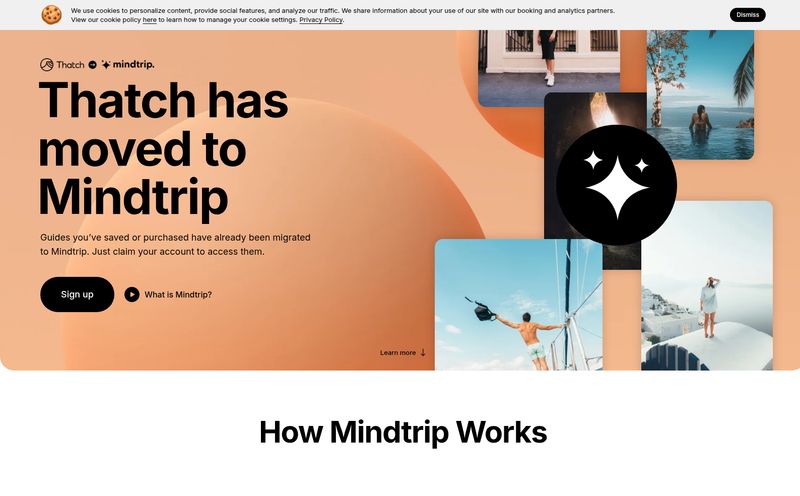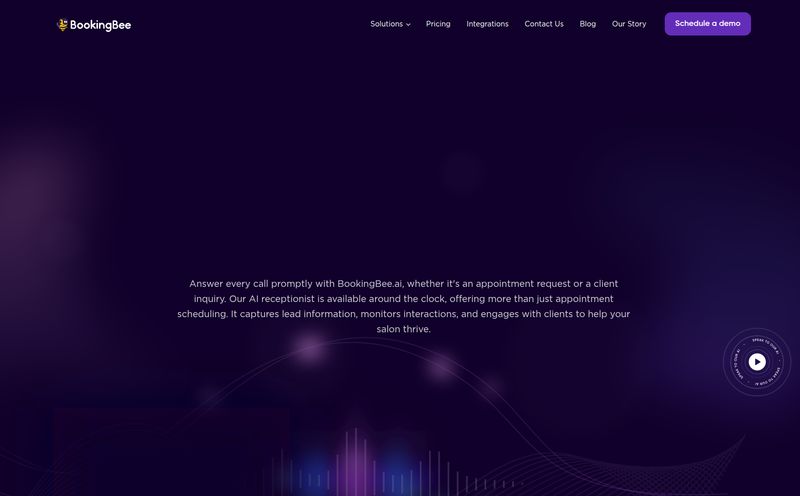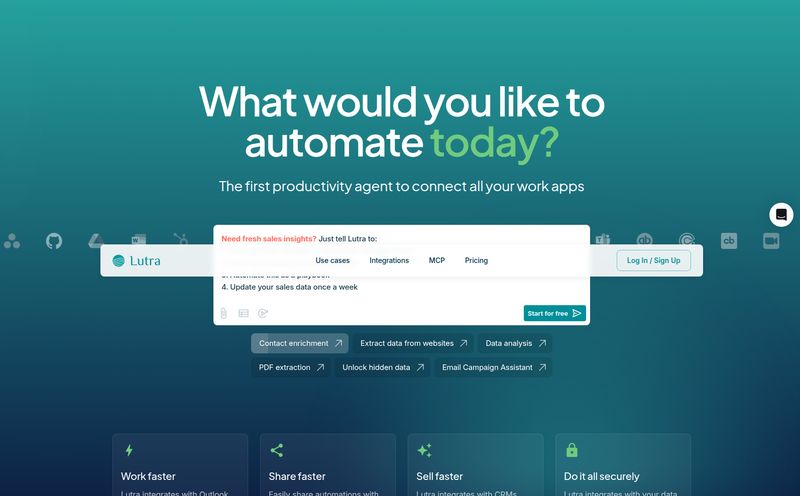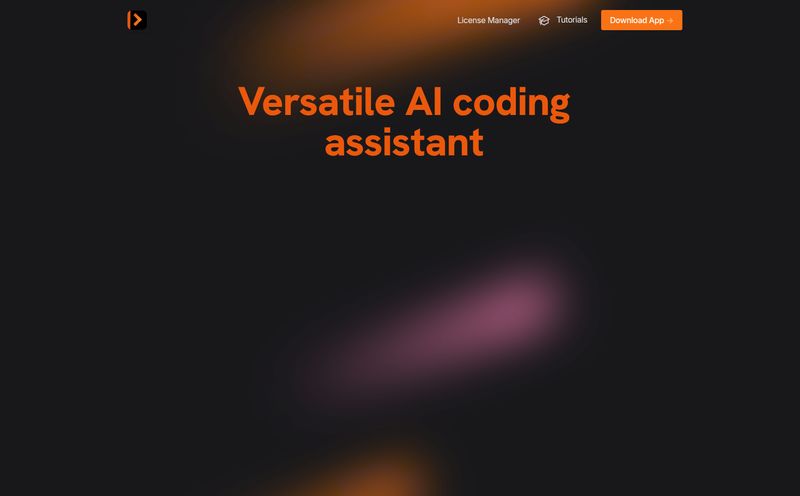We've all been there. You're staring at a page of API documentation that looks like it was written in a hurry, translated twice, and then faxed over. You spend hours, maybe even days, just trying to figure out the right endpoint to call. The developer experience, or DX as the cool kids call it, can sometimes feel like an afterthought. I remember one project back in the day where our team spent more time in a shared support channel asking basic questions about a partner's API than we did actually writing our own code. It was a complete bottleneck.
It’s this exact, soul-crushing scenario that has companies scrambling for a solution. And in the middle of this chaos, a tool called Treblle has thrown its hat in the ring with a pretty bold proposition: an AI assistant named Alfred. The claim? To 10x your API integrations and slash your support requests by a whopping 15x. That's a big promise. So, naturally, I had to see what all the fuss was about.
So What Exactly is Treblle's Alfred AI?
Think of Alfred not as just another chatbot, but as an intelligent API sidekick. It’s an AI assistant that you embed directly into your developer portal. The idea is simple but powerful: give developers a way to ask questions and get answers—and even code—in real-time, right where they're working. It’s like having a senior engineer on call 24/7, one who specializes in your API, never gets tired, and won't judge you for asking what you think is a silly question.
This isn't just about answering questions, though. It's about fundamentally changing the dynamic between an API provider and its consumers. It’s about turning the often-painful process of integration into a conversation. Pretty cool, right?
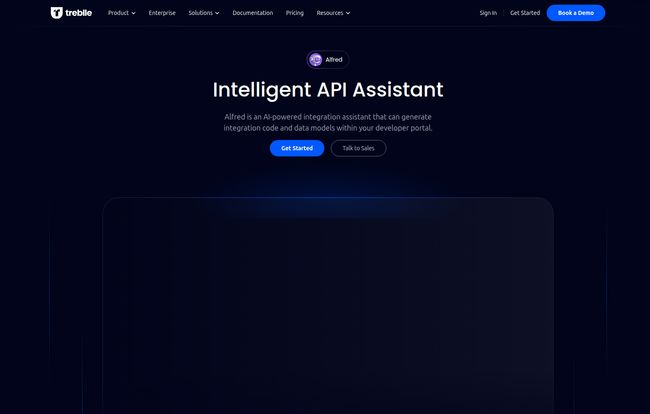
Visit Treblle
The Core Features That Actually Matter
A feature list is just a list. What I care about is how those features solve real problems. When you look at what Alfred does, a few things really stand out.
Instant Answers and Code Generation
The headline feature is the ability to “Ask Alfred anything.” A developer can literally type, “How do I create a new user?” and Alfred will not only explain it but can generate the integration code for them on the spot. In Python, in JavaScript, in whatever language they need. This is a direct assault on the classic 'copy-paste-and-pray' method that we're all guilty of. It takes the guesswork out of the equation and drastically shortens that 'time-to-first-call' metric that we all chase.
Making Sense of Complex APIs
Beyond code generation, Alfred helps developers understand the API's structure. It makes endpoint discovery easier and provides what Treblle calls “intelligent technical support.” This is huge for improving the overall developer experience. No more spelunking through a 100-page PDF to find one parameter name. Alfred acts as a friendly interpreter, translating your API’s logic into actionable insights for the developer. It's less of a tool and more of an API sherpa, guiding users up the mountain.
More Than Just an Assistant
Here’s something I find particularly interesting: Alfred isn't just a standalone gimmick. It’s the friendly face of the much broader Treblle platform. Treblle also offers a full suite of tools for API Intelligence, API Security, Governance, and Analytics. This context is crucial. It means Alfred's intelligence is fueled by real data about how your API is performing and being used. It's not just pulling from a static document; it’s part of a living, breathing system that monitors and understands your API's health. This gives it a leg up on a generic AI solution.
Putting it into Practice: Embedding Alfred
Okay, this all sounds great in theory, but what about implementation? This is often where great ideas fall apart. The website claims you can embed Alfred into your developer portal with “just 1 line of code.” I’m always skeptical of claims like this, but a simple script tag is indeed a very low barrier to entry. This is smart. It means teams can try it out without committing to a massive integration project.
Of course, let's be realistic. The effectiveness of Alfred is almost certainly tied to the quality of your underlying API documentation, specifically a well-structured OpenAPI Specification (formerly Swagger). The AI needs a good source of truth to learn from. The old saying “garbage in, garbage out” still holds true. If your API spec is a mess, Alfred might be more of a confused assistant than an intelligent one.
Let's Talk Money: The Treblle Pricing Breakdown
Alright, the part everyone wants to know about. How much does this cost? I was pleasantly surprised to see Treblle is very transparent with its pricing, which is a breath of fresh air. They've got a few tiers that make a lot of sense.
- Free Plan: This is pretty generous. You get up to 2 APIs, 10,000 requests per month, and access to the core products including the API Assistant, Alfred. It's perfect for a solo developer, a small project, or just giving teh platform a proper test drive. And yes, no credit card required.
- Starter Plan ($29/mo): This bumps you up to 5 APIs and 50,000 requests. It's a solid choice for small businesses or startups that are starting to see some real traffic to their API.
- Team Plan ($233/mo): Here's where it gets more serious. You get up to 20 APIs, half a million requests, and access to the API Governance and Analytics tools. This is for established teams that need more control and insight.
- Enterprise Plan: The classic “talk to sales” model. This is for the big players who need unlimited everything, on-premise options, and advanced security features.
In my experience, that free tier is a brilliant move. It removes all friction and lets the product speak for itself. It builds trust and lets you see the value firsthand before you even think about paying.
The Good, The Bad, and The API-Ugly
So, what’s the final verdict? No tool is perfect. I’ve always felt that an honest review needs to look at both sides. The big win for Treblle is that it's tackling a very real, very expensive problem: poor developer experience and the support overhead that comes with it. Automating integration workflows and providing instant, intelligent support can be a massive force multiplier for any company with an API.
On the flip side, the dependency on a high-quality OpenAPI spec is a real consideration. You have to do the foundational work first. Also, while the pricing starts friendly, that jump from the Starter to the Team plan is significant. Smaller teams will need to make sure they're getting enough value to justify that leap. It's an investment, for sure.
Who is Treblle Actually For?
After looking it all over, I think the ideal customer for Treblle is pretty clear. It’s for any SaaS company whose product is their API. It's for businesses building out partner ecosystems where smooth integration is everything. It’s even for larger organizations that are just trying to get their own internal development teams to use internal APIs more efficiently.
If you find your best engineers are spending their days answering the same three questions in a support forum instead of building your next big feature... well, you're probably the person Treblle wants to talk to.
Frequently Asked Questions about Treblle
Can I use the free plan without adding a credit card?
Yes, you absolutely can. The free plan is designed to be truly free, allowing you to get started and test out the platform's core features without any financial commitment.
What happens if I get more requests than my plan has?
While the pricing page doesn't specify overage charges, typically with SaaS models like this, you'd be prompted to upgrade to the next tier to accommodate your growing traffic. The platform will likely notify you as you approach your limit.
What payment provider do you use?
Treblle uses Stripe for payment processing on their paid plans. Stripe is an industry-standard, highly secure provider, so you can be confident in their handling of transactions.
Is Alfred AI just a fancy wrapper for ChatGPT?
That's a fair question in today's AI-heavy world. While it likely uses a large language model at its core, its real power comes from its integration with the entire Treblle platform. It's trained and fine-tuned on your specific API spec and gets context from real-world analytics and intelligence data, making it far more specialized than a generic chatbot.
How hard is the setup, really?
The initial setup of embedding Alfred is as simple as they say—a single line of code. However, the real work is ensuring you have a clean, comprehensive, and up-to-date OpenAPI Specification for your API. The quality of your input will directly affect the quality of Alfred's output.
Wrapping It Up
Treblle's Alfred AI is more than just an interesting piece of tech; it's a very clever solution to a persistent and costly problem. It directly addresses the friction that stifles API adoption and drains developer resources. By embedding intelligence directly into the developer portal, it transforms documentation from a static library into a dynamic, interactive partner.
It isn't a silver bullet—you still need to have your house in order with good API design and documentation. But for API-first companies, it represents a significant step forward. The future of developer portals is undoubtedly intelligent, and Treblle is making a very strong case for being at the front of that evolution.
